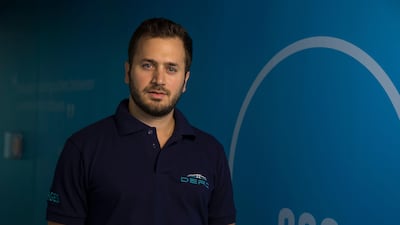Artificial intelligence will soon be used on Dubai's roads after Smart Dubai Office signed an agreement this week with the Roads and Transport Authority and a local start-up in a bid to cut road accidents.
In July, an early warning crash detector that would alert drivers to hazards and erratic road users around them was being developed to cut road deaths.
At the time, start-up Derq was testing the system that would see roadside scanners search for speeding and swerving drivers but now that system is a little closer to becoming a reality on the roads.
"[We will] experiment with the use of AI technology developed in the American Massachusetts Institute of Technology to enhance safety at junctions witnessing overlapping traffic between vehicles and Dubai Tram," said Mattar Al Tayer, the RTA's director general. "This technology is based on installing special sensors at junctions to figure out the speed of vehicles and the distance remaining for vehicles to cross the signal. Through using AI technology, the tram driver will be alerted before arriving at the junction to be cautious of a vehicle about to jump the red light signal."
Dr Georges Aoude, chief executive of Derq, said he was proud to have the government's support to bring the company's solutions to Dubai's roads. "We are excited to have built our organisation and grown our talent in Dubai to develop cutting edge AI-based connected vehicle technologies to predict and prevent road accidents," he said.
Read more: Dubai start-up aims to cut UAE road accidents
"Our key objectives are aligned with Dubai Government's priorities to significantly reduce accident rates by 2021, contribute to enhancing the mobility of the city of Dubai and enable the safe deployment of autonomous vehicles by 2030. For today's cars, it will improve road safety and reduce accidents by being able to predict and prevent them."
By 2030, Dubai aims for 25 per cent of its transportation to be driverless. "This will require a connected infrastructure and city so they can navigate safely around their surroundings," he said. "We are able to provide that through our connected safety systems."
The agreement, signed in collaboration with Dubai Silicon Oasis Authority, includes demonstrating the feasibility and benefits of connected vehicle technologies for road safety on conventional and autonomous vehicles in Dubai and implementing and developing innovative AI solutions for collision prediction and prevention in the emirate. It also includes mining and analysing Big Data for road safety applications and other smart mobility solutions.

